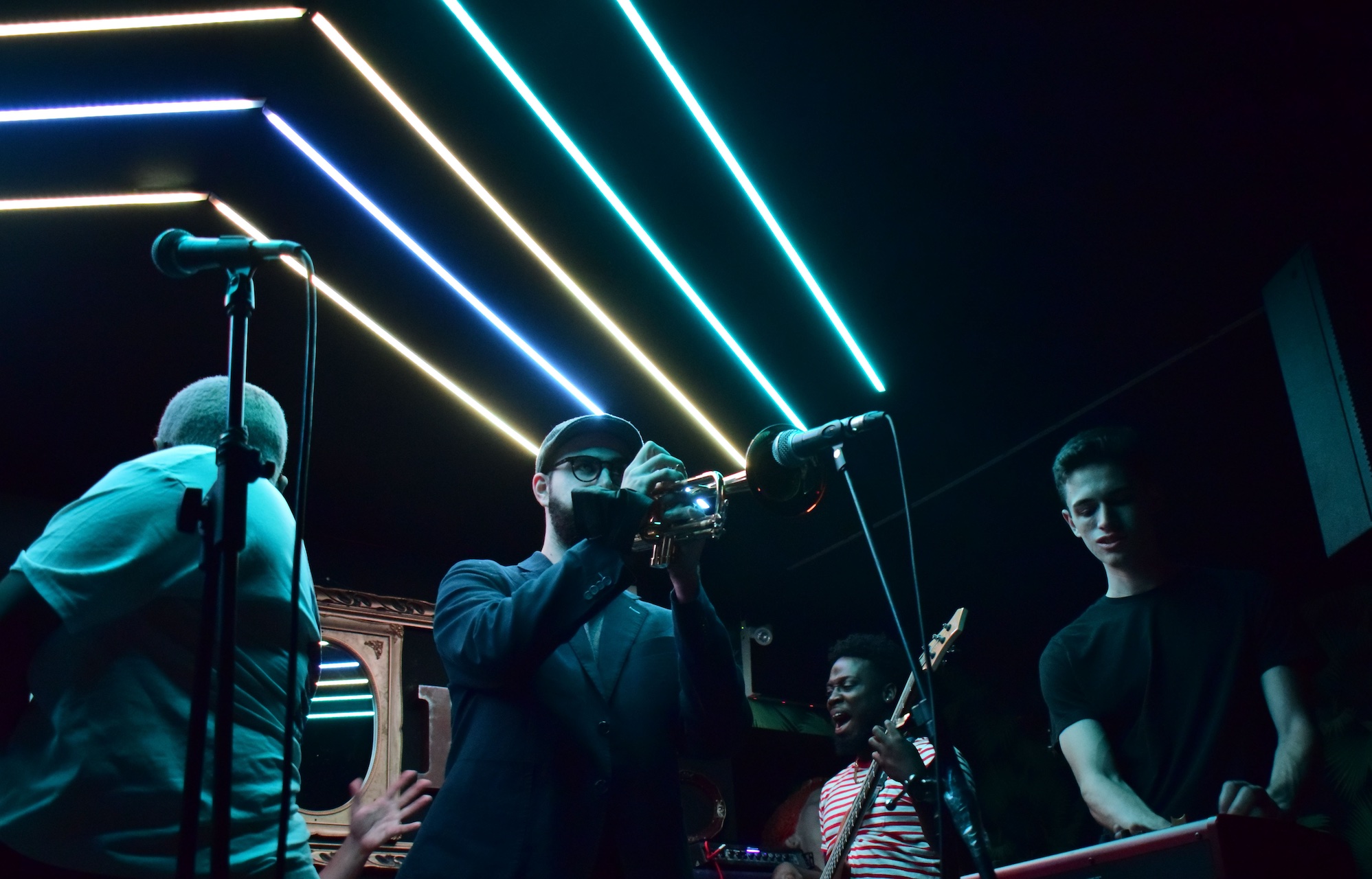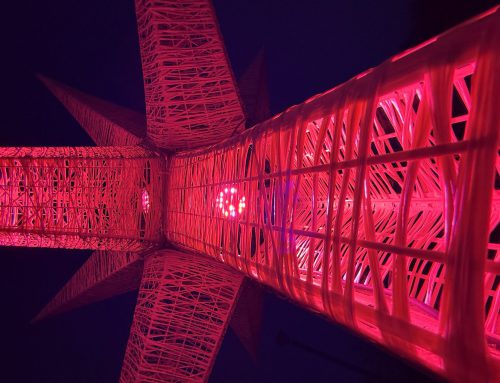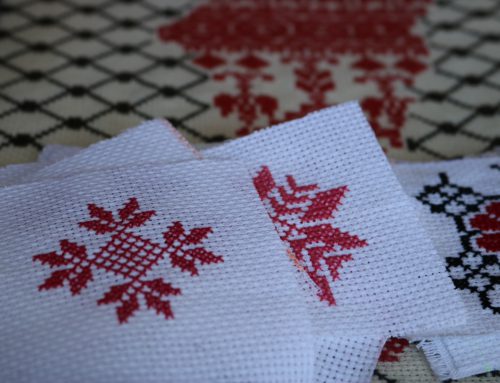BY Mohammad Khan & Saro Hartounian
“The most frustrating part of the whole thing is that I have been here in this location for five years, I have been servicing the community and the art scene in Montreal for ten years,” says Sergio Dasilva, co-owner of Turbo Haus. “And I can have that all ruined and taken away by somebody who is going to be here for six months. You’re not part of the community, you’re not giving anything back, you’re only taking.”
Turbo Haus is a small venue in Montreal’s Quartier des Spectacles. In 2023, it received a noise warning following complaints from a new student housing complex located directly behind the building.
Dasilva and other venue owners see the city’s rapid push for private housing developments coupled with the vague, subjective and improperly enforced noise bylaws as a problem for local businesses.
“There has to be clear regulation about what constitutes a noise nuisance, those have to be set in stone, so that it isn’t at the discretion of some f*cking pig that walks in here and decides that it’s a problem, so I can work within those terms,” Dasilva adds.
He says he was not given any information in the noise warning from the city about where the noise was coming from, what day it was nor how many decibels they had reached, making it difficult to adjust or comply with the existing laws.
“There’s no hard rule, I just have to guess, waste money and hope it works out,” he says.
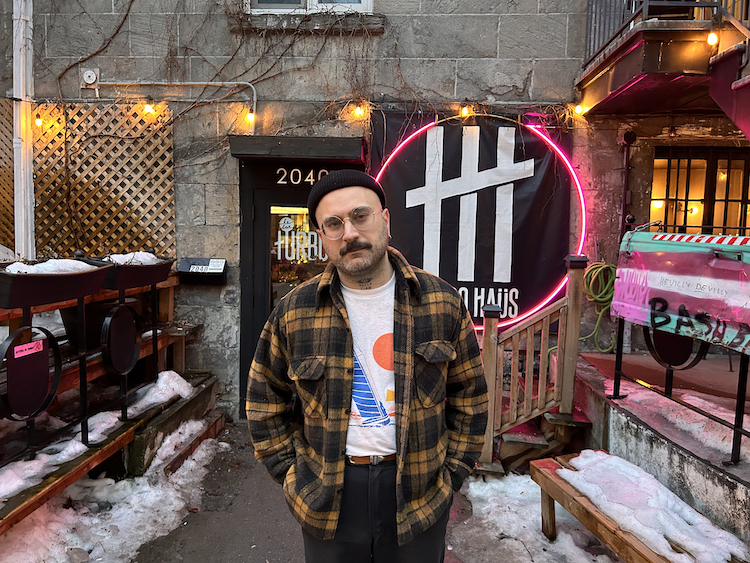
Sergio Dasilva stands in front of TurboHaus. Photo by Mohammad Khan.
The Alternative Music Venues of Quebec represents 50 independent venues in the province and over three quarters of indoor music concerts. Its director, Jon Weisz says it’s time for the government to take action to save venues.
“We’ve seen about four or five venues in Montreal close over recent years for reasons at least in part to the city’s noise bylaws,” says Weisz. “All it takes is one neighbour who keeps making a complaint every few days for a venue to rack up tens of thousands of dollars in noise complaints.”
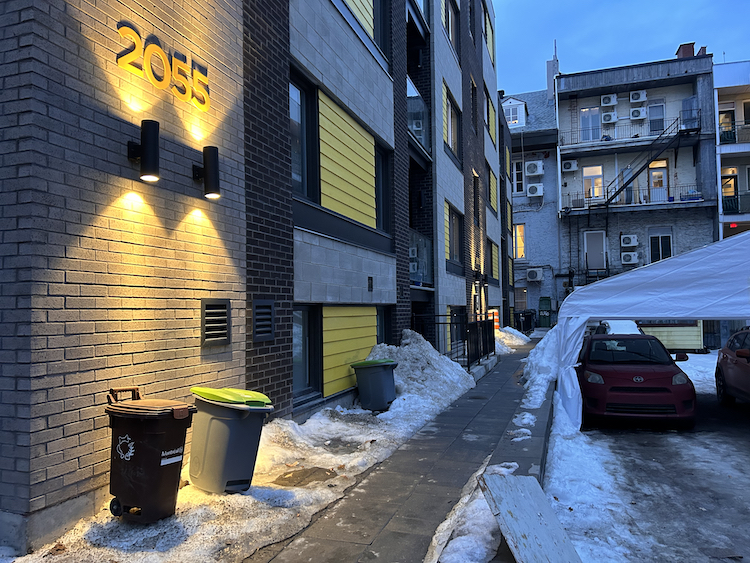
Student Housing Complex behind TurboHaus. Photo by Mohammad Khan.
Montreal held its first public consultation for a nightlife policy initiative in early 2024.
Montreal’s Commission that addresses urban planning, housing, and economic development issues, presented a draft for the nightlife. It promised to revise bylaws, engage boroughs in setting 24-hour party zones and segment nightlife into three periods: 6 p.m. to midnight, midnight to 4:30 a.m., and 4:30 a.m. to 6 a.m.
The policy also aims to ensure a “healthy coexistence between nighttime activities and the needs of the public,” offer a dynamic and safe nightlife based on Montreal culture as well as maintain and reinforce developing sectors in Montreal’s nightlife.
“One of our hopes when it comes to discussing noise regulations is to work with the boroughs when it comes to this issue,” says city councillor Ericka Alneus. “Exploring this with them would allow us to meet halfway, to work with both sides and meet in the middle so that everyone can enjoy the nightlife or enjoy their beds.”
The city’s Director of Economic Development, Eric Labelle, adds that such issues surrounding regulations and applications of the policy should also be brought forth by the public in consultations surrounding the 2050 Land Use and Mobility Plan (PUM).
“This point [concerning noise bylaw enforcement] is very important to the nightlife policy but may also be very important to the consultations regarding the PUM carried out by the Service de l’Urbanisme,” he says.
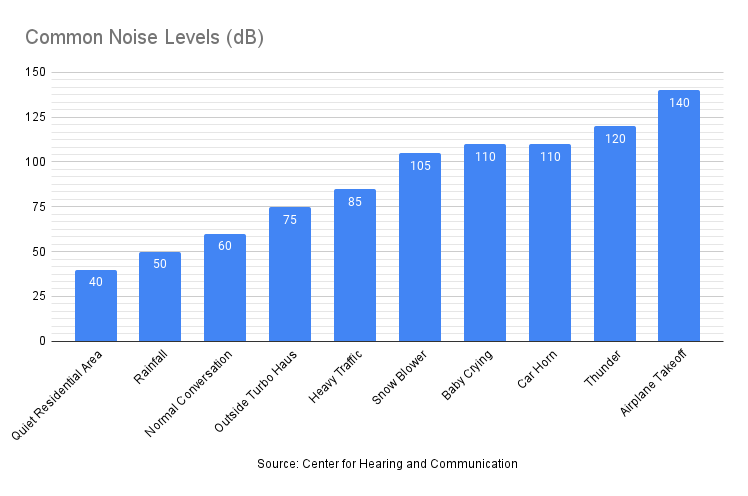
Comparing noise levels between TurboHaus and everyday sounds. Media by Mohammad Khan.
Geography, Planning and Environment Professor Martin Danyluk specializes in infrastructure, housing, transportation, and inequality in cities. He believes that the issue here is a “classic urban planning problem.”
“There is no simple solution, what seems to be interesting in Montreal’s case are gentrification pressures,” explains Danyluk. “A key factor that’s driving a lot of the noise complaints seem to be new housing developments in close proximity to venues, particularly music venues and other arts and cultural spaces, with complaints coming from new student housing and new condo buildings.”
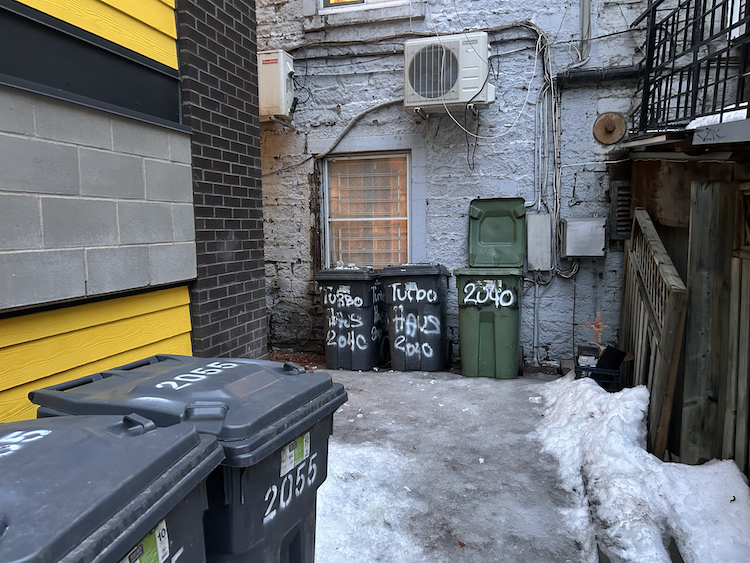
A small alleyway separates TurboHaus from a recent housing complex. Photo by Mohammad Khan.
Danyluk says that a major facet of this problem is due to the housing crisis.
“Increasing the supply is one way to ease the pressures on house prices but it seems there is a risk that housing comes to take precedence over the other uses of land,” he says. “We end up with what some are warning of a ‘city of homes’ or a ‘bedroom community’ with not much to do after 6 p.m. or 8 p.m.”
Danyluk believes that the current economy will likely prove to sway in favour of housing developments over businesses in the long run. However, he does think that the city is doing something right to recognize the nighttime economy following the lead of many other cities around the world.
“It’s a really delicate line to walk between trying to promote nightlife and the night time economy and respecting the needs of those who are living in proximity to those nightlife venues, and I think that’s why the city is investing so much in it,” he says.
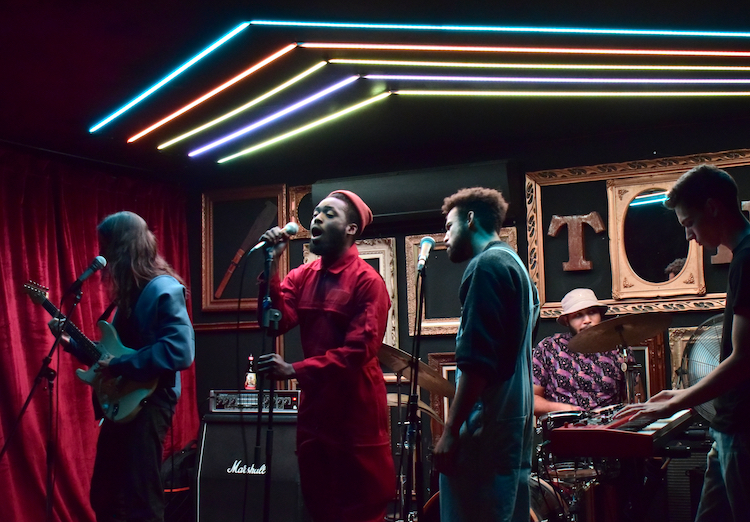
Local artists perform live at TurboHaus. Photo by Mohammad Khan.
Weisz is advocating for the city to adopt an “agent of change” legal principle for developments.
“It essentially puts the onus on developers to make sure that new constructions are taking into account any existing uses that are within a certain radius of the new development,” he says.
Danyluk explained that in larger, fast-growing cities such as Toronto and Vancouver, it is easier for the city to impose higher regulations or concessions in exchange for the right to build.
For smaller cities with slower economies, municipalities have much less bargaining power as the developers could go elsewhere.
“Montreal falls somewhere in the middle here, it’s growing but it’s growing slowly,” he says.
Musicians fret over the ever-changing situation of music venues amid noise complaints. Video by Saro Hartounian.
While the city has invested $1.4 million to help soundproof eight venues, it is unclear whether the sustainability of this will be seen long term given the issues with noise by-laws themselves.
“The city investing in soundproofing is a great thing but it doesn’t in and of itself solve the problems of precarity and fragility,” Weisz states.
Weisz hopes that the new policy will help venues. He has a suggestion for what it should include: “A strong and immediate commitment to completely overhaul noise bylaws in Montreal’s boroughs. The sector has been asking the city to change them for at least 20 years.”
Weisz explains that venues that shutdown never come back, denoting the fragility of the cultural ecosystem in Montreal and the need to sanctify and protect cultural spaces in the city, something that has historically been reserved for “traditional” cultural spaces such as theatres and museums.
“We need to develop the habit of seeing performance venues, no matter what their business model, in the same light,” he adds.
Danyluk also notes that noise bylaws often have stipulations with explicit decibel thresholds and parameters involving distance that is measurable and be a defence in the case of a complaint or warning.
“I would expect to see that change, if the city is trying to take this seriously, both sides are going to want a little more clarity, especially businesses, what can they expect, what are the exact requirements that they are being asked to meet?” he says.
“Twenty years ago [Montreal] was a mecca for music and art because of the affordability of our housing. What everything comes down to is housing and basic necessities, if those things remain affordable, then you’ll have a flourishing art scene,” says Dasilva.
“The city has to give people a reason to come to the city, there’s no reason to live here if it isn’t for the things that are here, the f*cking art, the culture, the food.”
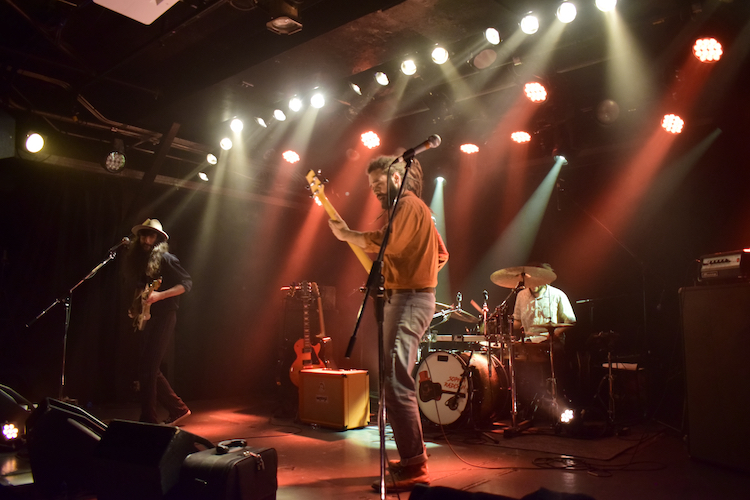
Artist performs a guitar solo live at TurboHaus. Photo by Mohammad Khan.
